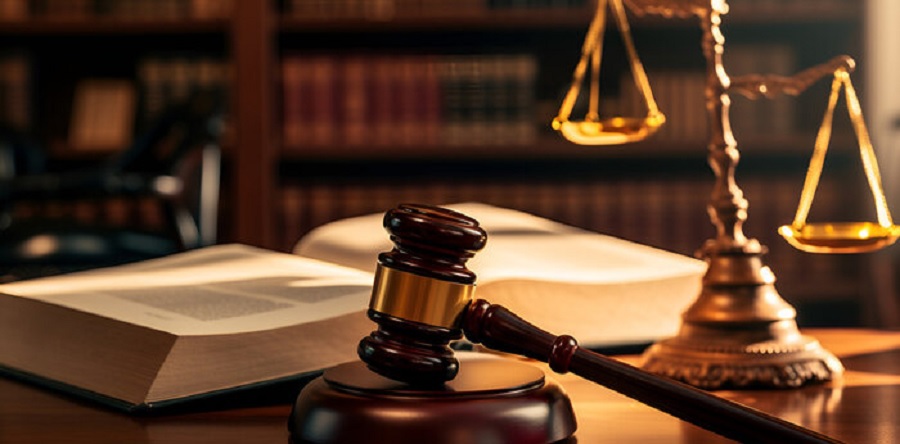Introduction: Law as the Backbone of Order
Law is not merely a system of rules; it is the invisible architecture that holds society together. From ancient civilizations to modern democracies, law has acted as both sword and shield—protecting rights, resolving conflicts, and fostering justice. Despite its omnipresence in daily life, the essence of law remains layered and complex, shaped by history, culture, and evolving moral philosophies.
This article delves into the foundational nature of law, its historical evolution, its indispensable role in society, and the modern-day challenges that demand a reimagining of legal systems.
The Origin and Evolution of Law
Throughout history, the law has served as a mirror reflecting the values and priorities of its time.
Ancient Roots
-
Code of Hammurabi (circa 1754 BCE): One of the earliest known legal documents, laying down strict principles of justice in Mesopotamia.
-
Roman Law: Influenced modern legal systems with concepts like contracts, torts, and personal property.
-
Common Law Tradition: Originating in medieval England, it relied heavily on judicial precedents and has had lasting influence on the legal systems of many English-speaking countries.
Legal Philosophies
-
Natural Law: Asserts that laws should reflect inherent human rights and moral order.
-
Legal Positivism: Views law as a construct of human authority, regardless of moral content.
-
Critical Legal Studies: Challenges the neutrality of law, arguing that it often reinforces social hierarchies.
From rigid monarchies to participatory democracies, the structure and intent of legal systems have continually evolved, embracing both rigidity and reform.
The Fundamental Purposes of Law
1. Maintaining Social Order
Laws act as deterrents, dissuading harmful behavior and ensuring stability. Whether addressing petty theft or corporate fraud, the law sets boundaries for acceptable conduct.
2. Protecting Individual Rights
At the heart of democratic societies lies the law’s role in safeguarding civil liberties—freedom of speech, privacy, equality before the law, and protection from discrimination.
3. Facilitating Justice
Justice is the soul of law. While perfect justice may remain an ideal, the legal system strives toward fairness by ensuring due process, impartial judgment, and proportional punishment.
4. Resolving Disputes
Courts provide structured frameworks for resolving disagreements—be it between individuals, corporations, or governments—without resorting to violence or vigilantism.
The Structure of Modern Legal Systems
Branches of Law
-
Criminal Law: Addresses offenses against the state, prescribing penalties such as imprisonment or fines.
-
Civil Law: Governs relationships between private individuals or entities, covering issues like contracts, property, and family disputes.
-
Constitutional Law: Deals with the interpretation and application of a nation’s constitution.
-
Administrative Law: Regulates the actions of governmental agencies.
-
International Law: Governs relations between sovereign states and includes treaties, trade regulations, and human rights conventions.
Sources of Law
-
Statutory Law: Created by legislative bodies.
-
Common Law: Based on judicial rulings and precedents.
-
Regulatory Law: Derived from executive agencies.
-
Customary Law: Reflects long-standing practices recognized as binding.
The Legal Profession: Guardians of the Rule of Law
Lawyers, judges, legal scholars, and advocates are more than mere technicians of rulebooks—they are custodians of justice.
The Role of Lawyers
-
Advise clients on their legal rights and obligations.
-
Represent individuals or organizations in court.
-
Mediate and negotiate on behalf of disputing parties.
The Responsibility of Judges
-
Interpret and apply the law impartially.
-
Set legal precedents that influence future rulings.
-
Act as neutral arbiters in a system built on checks and balances.
Challenges in Contemporary Legal Systems
Despite its noble ideals, the law is not without flaws. Several pressing issues continue to challenge its efficacy and fairness.
1. Access to Justice
Legal aid remains out of reach for many, especially marginalized groups. High costs and procedural complexities can make justice a luxury rather than a right.
2. Overcriminalization
Some jurisdictions suffer from an excess of criminal statutes, leading to over-policing, mass incarceration, and systemic bias.
3. Technological Disruption
-
Cybercrime: New forms of criminal behavior—data breaches, identity theft, and digital fraud—outpace existing legal frameworks.
-
AI and Automation: Raise profound questions about liability, privacy, and ethical accountability.
4. Globalization
With increased cross-border interactions, laws must now contend with international norms, treaties, and transnational justice systems, which can sometimes clash with domestic legal principles.
Toward a More Equitable Legal Future
For law to retain its legitimacy, it must evolve with societal values and technological progress. This calls for:
-
Legal Reforms: Simplifying procedures, modernizing outdated laws, and decriminalizing victimless behaviors.
-
Judicial Transparency: Promoting open trials and clearer reasoning in verdicts to build public trust.
-
Inclusivity in the Legal Profession: Encouraging diversity among legal practitioners to ensure broader representation and fairness.
-
Embracing Digital Transformation: Leveraging technology to streamline court processes, offer remote legal consultations, and improve access to legal information.
Conclusion: Law as a Living Institution
Law is not static. It breathes, bends, and—when nurtured well—blooms into an instrument of profound good. While it can be manipulated or misapplied, its core mission remains noble: to serve as society’s moral compass, arbiter of fairness, and defender of human dignity.
Understanding law is not just the province of legal professionals. As citizens, we engage with law daily—through our rights, our responsibilities, and our shared pursuit of justice. In recognizing its centrality to human civilization, we become more equipped not only to obey the law but also to shape it for the better.
In the end, a just society is not one that merely enforces laws, but one that ensures they reflect the best of human values—equity, compassion, and reason.


